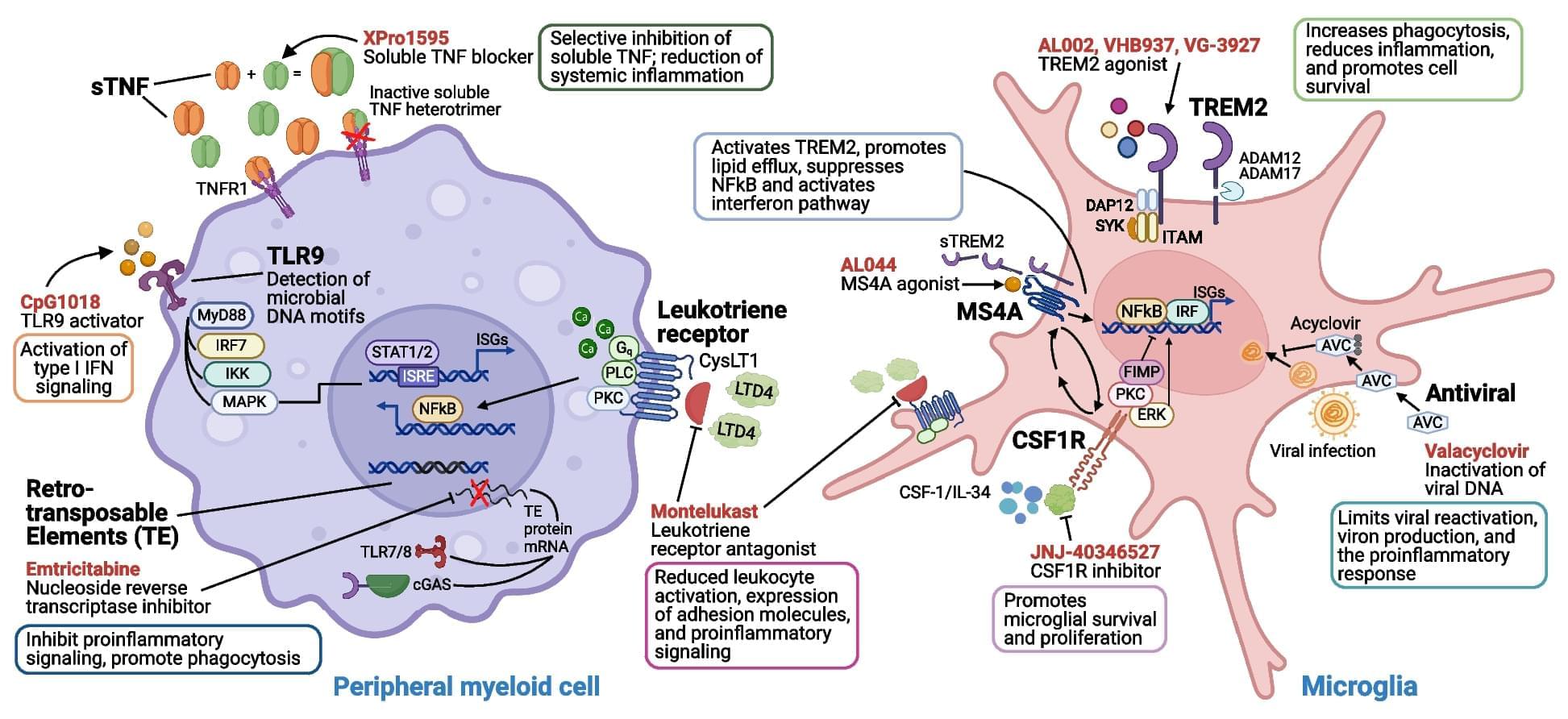Immune mechanisms play a fundamental role in Alzheimer’s disease (AD) pathogenesis, suggesting that approaches which target immune cells and immunologically relevant molecules can offer therapeutic opportunities beyond the recently approved amyloid beta monoclonal therapies. In this review, we provide an overview of immunomodulatory therapeutics in development, including their preclinical evidence and clinical trial results. Along with detailing immune processes involved in AD pathogenesis and highlighting how these mechanisms can be therapeutically targeted to modify disease progression, we summarize knowledge gained from previous trials of immune-based interventions, and provide a series of recommendations for the development of future immunomodulatory therapeutics to treat AD.
